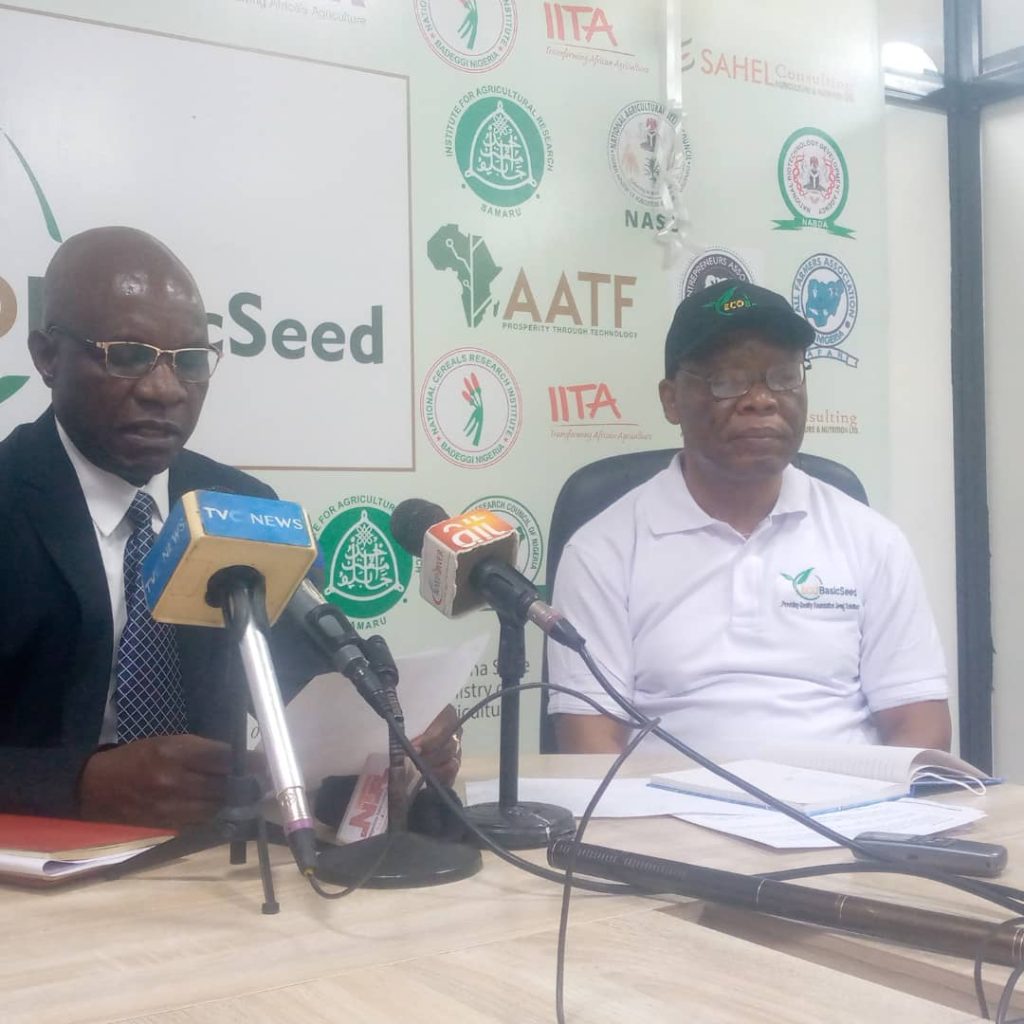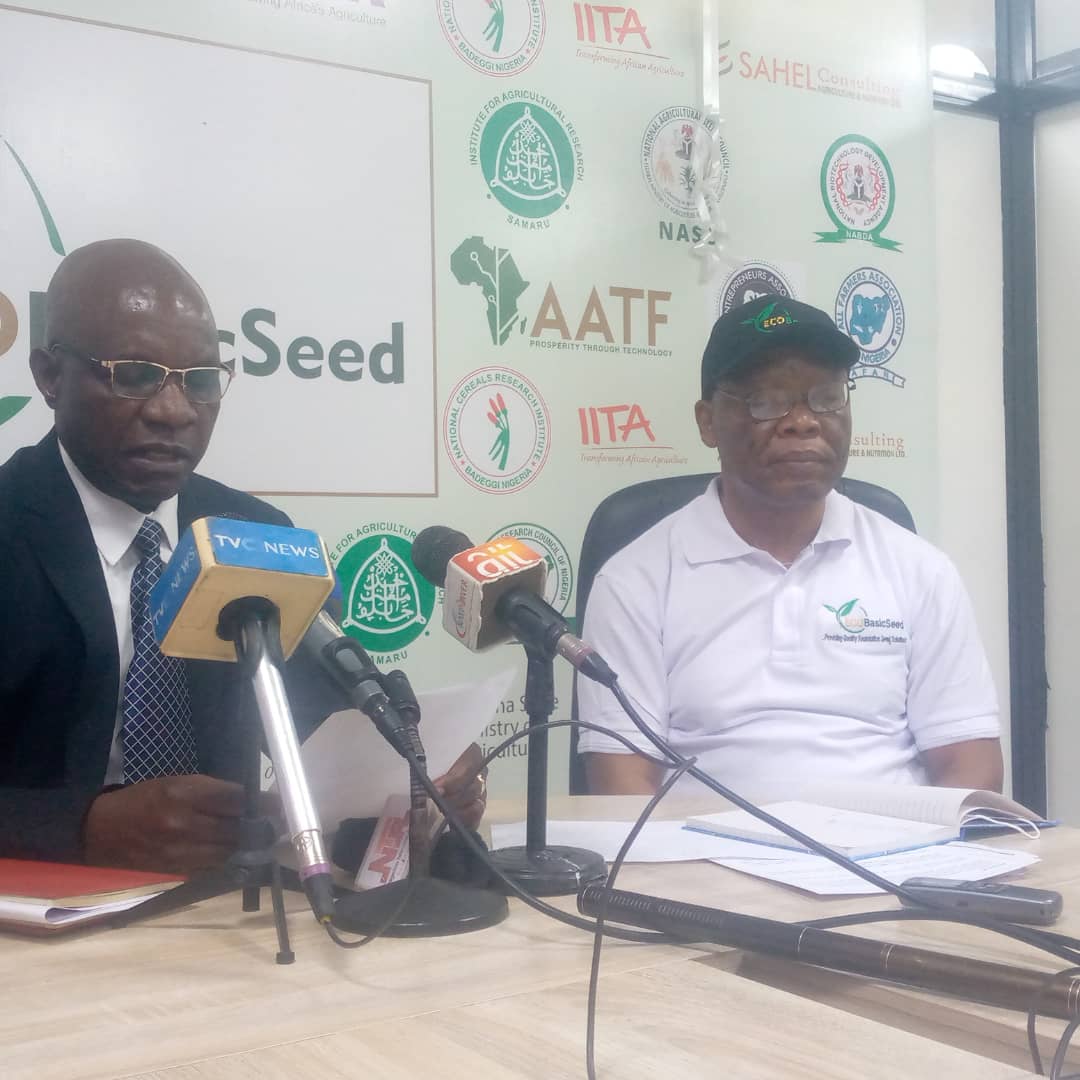
ECO Basic Seed says with sustainable investment Nigeria will be able to meet its annual maize deficit which currently stands at eight million metric tons.
The Managing Director of the Company, Brighton Karume stated this during an interaction with newsmen in Kaduna as part of activities marking it’s one year anniversary.
He explained that in Africa, Nigeria is not leading in maize production but grows the largest maize
hectarage on the continent and it’s due to it’s inability to utilize the opportunities of hybrid varieties which enable the farmers to produce more from the same old piece of land.
“Technology now plays a very crucial role in agricultural productivity and hybrid technology brings about improved varieties which is helping farmers in other countries in their quest for food and nutritional security, Nigeria cannot afford to miss out,” he said.
Brighton Karume said based on its promise and keeping to its watch word which guides its operations to ensure food sufficiency in WestAfrica, within the last 12 months of commencing operations, ECO Basic Seed has in collaboration with out growers, established fifty hectares of maize and cow peas seed across Nigeria.
“A year ago, we debuted with the promise of bridging the wide gap between foundation and certified seed production in the country as a way of giving our farmers the opportunity to maximize profit, and expand their production with the availability of quality and 100% seed purity.
“We have been able to transform into an exciting organization working with Out growers to cultivate over 50 hectarage of maize and cowpeas (beans) foundation seed across Nigeria,” he said.
According to him, other successes recorded within its first year of existence, is establishment of 60 Demo sites.
“Prolific germination of about 60 different demo sites across Kaduna, Niger and Kano states with about 10 different varieties of hybrid maize including Sammaz 62, Sammaz 63 and Sammaz 68 of drought tolerant and high yield
International Training,” he informed.
Brighton Karume said the ECO Basic Seed team believes that all their individual actions contribute to the bigger picture, one team moving in the same direction hence, the World Class Training is organized abroad for the team to provide an added dimension to both their awareness, skills and professionalism.
“To date, seed companies have committed to work by placing foundation seed orders of various hybrids including the new cowpea seed on the market against next year.
ECO Basic Seed promised to ensure provision of quality and genetic purity as well as on-time delivery, standard and professionalism with value addition at minimum cost.
The Managing Director stressed that it is important that farmers reduce their concentration on Open Pollinated Varieties and embrace Hybrid Varieties which yield better and has the capacity of leapfrogging Nigeria to the attainment of self-sufficiency in maize production.
He pointed out that as a new entrant to the seed sector in Nigeria, they also get a lot of support from local and international stakeholders and partners.
“It is my pleasure to address you today as we mark first year of operation in Nigeria. A year ago, we debut with the promise of bridging the wide gap between foundation and certified seed production in the country as a way of giving our farmers the opportunity to maximize profit, and expand their production with the availability of quality and 100% seed purity,” he said.
As part of the interaction, ECPBasicSeed led the journalists on a field visit to one of their demo sites along Kaduna-Zaria Highway, where their Supply Chain and Production Manager, David Jethro said that the maize grown their has proven to be a success, with farmers around the area, trooping in to admire the yeild.
The farmer managing the farm, Abdulrazak Rabiu when explaining, told the visiting team that the maize was planted ending of June this year and since then, other farmers in the community have been coming to inquire which kind of variety was planted because of the yeild.
“In less than three months, it is ready for harvest,” he said.
Speaking further, he said that if more farmers embrace the variety, they would get more yeild.
Cov/Adamu Yusuf/Kaduna
